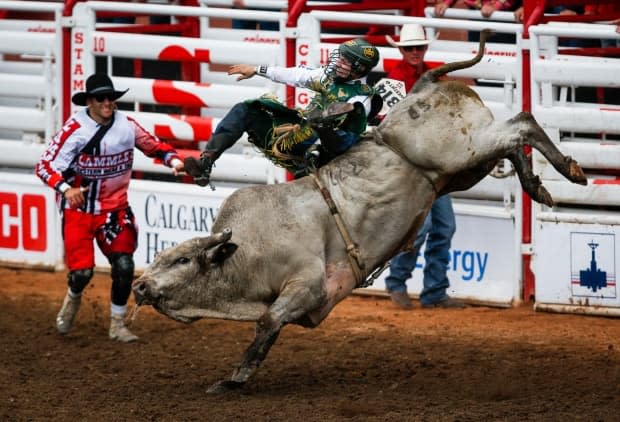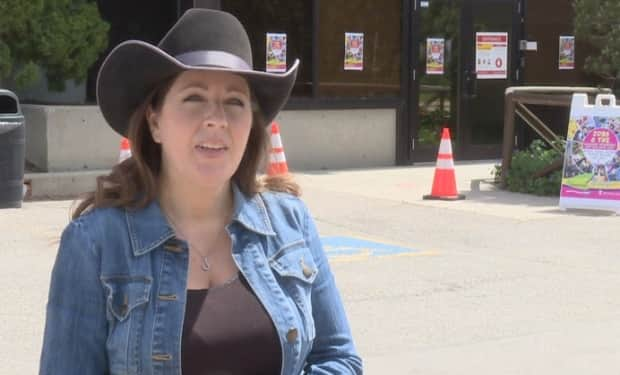Calgary Stampede implements modified quarantine, vaccine requirements and testing plan for rodeo athletes

The Calgary Stampede is going ahead this year, but the rodeo will look a little different with fewer in attendance and more stringent rules in place for participants, including being at least partially vaccinated against COVID-19.
Following the federal government's approval of COVID-19 travel exemptions for international rodeo performers and staff on June 11, the Calgary Stampede is now gearing up to welcome contenders for this year's event.
The exemption, signed by Marco Mendicino, the federal minister of immigration, refugees and citizenship, applies to "rodeo participants and select support staff and workers" for one-time entry into Canada.
"Our requirement is that all of those athletes have at least one vaccination, ideally two if they can," said Kristina Barnes, manager of communications and media relations for the Stampede.
"So two weeks before coming to the border, they'll start self-assessments daily. They will need to do a couple of COVID-19 tests prior to coming to the border. And then once they cross the border, they will continue those tests throughout the 10 days of stampede."

It follows a review of protocols outlined by the Stampede to mitigate the risk of COVID-19.
According to the protocols, the Stampede must:
Put measures in place to test, trace and isolate COVID-19 cases.
Comply with health orders.
Implement a "modified quarantine."
Put measures in place to limit physical interactions at the site and ensure disinfection.
Hire a compliance officer to oversee quarantine requirements.
Establish consequences for non-compliance.
Barnes said that when participants cross the border, they will go to secure lodgings, be it a hotel or facility outside of Calgary to be able to stay with their animals.
Limited contact and restricted access
"When they're here during the rodeo, they'll travel from where they're staying to the stampede, [then] travel back to where they're saying. They won't be out and about in the community — for the community's safety and for their own so that they aren't mixing with the general population," said Barnes.
Changes to this year's Stampede will also include restrictions to the rodeo arena. It will be deemed a secure infield, meaning media people and staff who were able to go in and out previously will not be permitted this year.
"Any of the support staff and the team that is part of putting on the rodeo production will also be following that strict daily testing regime as well," said Barnes.
Rodeo remains world-class attraction
The Stampede says it has extended invites to world-class athletes to compete, just as in previous years. However, it's unknown if this year's quarantine requirements have caused some to reconsider.
"I can't say whether those that said 'no thanks' is because of vaccinations or because of their plans," said Barnes.
"What I can tell you is that we have a great lineup. There are world champions, Canadian champions, past Stampede champions. Lots of big names in the sport, certainly, [are] planning to be here this year."

 Yahoo Movies
Yahoo Movies 